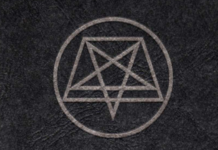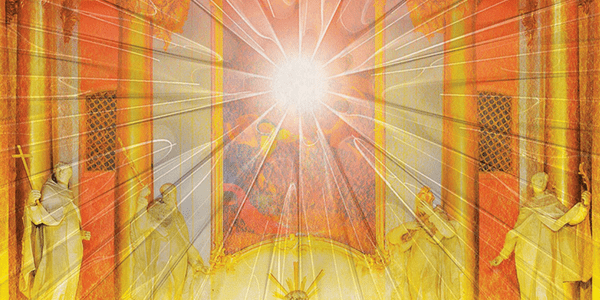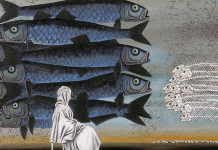
Storytelling allows us to create whole new worlds or to recast our current one in a more striking shape — as dream, as nightmare, or as rapier-tipped political tool. Filling the blank void of that first page is an act of creative magick reminiscent of the storied gods: “In the beginning was the Word.”1
Words are magick. Just ask Odin One-Eye how much he was willing to sacrifice to get his hands on the runes.2 Or ask Amun-Ra how well creation would have gone without names to speak the world into being.3
Stories are magick, too. As myths, we tell them to give context to the mysteries of our world. Through image and metaphor, they encode knowledge in a form so memorable, it can be passed orally to endure through generations.
Just consider the creations of Alan Moore, Grant Morrison, and Warren Ellis, writers who boldly harnessed those oft-denigrated rags of popular culture, comic books, to accomplish potent magical workings of awakening and change. Their stories challenge us, inspire us — and even seek to rewrite aspects of our reality by injecting alternate perspectives into the architecture of the collective imagination. But even when an author is not consciously working magick through the storyteller’s art, magick can nevertheless be the result. How potent a wellspring of mythic forms did J. R. R. Tolkien provide for the 20th century — and how many modern mages and wizards drew at least a little inspiration from his epic creation, Gandalf? Then there is H. P. Lovecraft – an avowed atheist — whose nightmares birthed grimoires both spurious and serious, as in Phil Hine’s Pseudonomicon, ((Ed. note: See our review of The Pseudonomicon.)) a riff on Lovecraft’s infamous (and wholly fictitious) Necronomicon.
The Great Old Ones may be the stuff of fiction, but the universe certainly holds powers that are more than happy to slip into the spaces held open by those word-crafted, fun-house skins.
Among many serious practitioners, however, there remains a tendency to overlook fiction as a legitimate magical tool — both the writing and the reading of it. That attitude stems from the same brand of intellectual snobbery that inspires academics to denigrate comic books and genre fiction as unworthy of the title of literature. Gatekeepers establish what others are allowed to perceive as valid pathways to knowledge — all the while overlooking the fact that, in the beginning, all magical, religious, and spiritual systems are essentially made up. Someone ignites the initial spark, and only the burden of time develops the patina we recognize as tradition.
In practical terms, this means that beliefs — and practices founded in belief — are in a state of constant evolution, and that evolution is facilitated by the art of the storyteller. New myths and reinvented tropes provide the building blocks for the personal narratives through which we transform in our spiritual practices, whether we frame those practices as occultism or religion. What is a ritual but a story enacted through gestures and words, culminating in the focus of the participant(s) will toward an agreed-upon goal?
Certainly we can work magick in a stripped-down form, free from the idiom of heroes or gods, but that idiom has power. Archetypes provide a mental shorthand with which to identify self, group, and goal. Pre-charged with emotion, their layered associations become added fuel to any magical fire.
Who wouldn’t want to Prometheus-like tap into the collective energy behind a figure like Harry Potter, the better to drive a ritual for friendship or courage?4 Our pop culture characters are the mythic heroes of modern society, and there should be no shame in making use of them. After all, we are each of us dreamers, shapers, singers, and makers, and it is through the power of our imaginations that we work magick at all.
- The title for this article, “Dreamers, shapers, singers, and makers,” was inspired by an episode of Babylon 5, “The Geometry of Shadows.” [↩]
- For further reading visit Norse-Mythology.org, “Why Odin is one-eyed.” [↩]
- For further reading visit Egyptian-Witchcraft.com, “God, Amun-Ra.” [↩]
- Ed. note: See also, “Pop culture magick: Intro and prosperity spell.” [↩]








